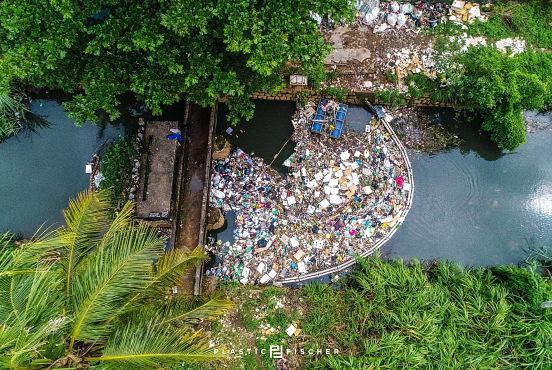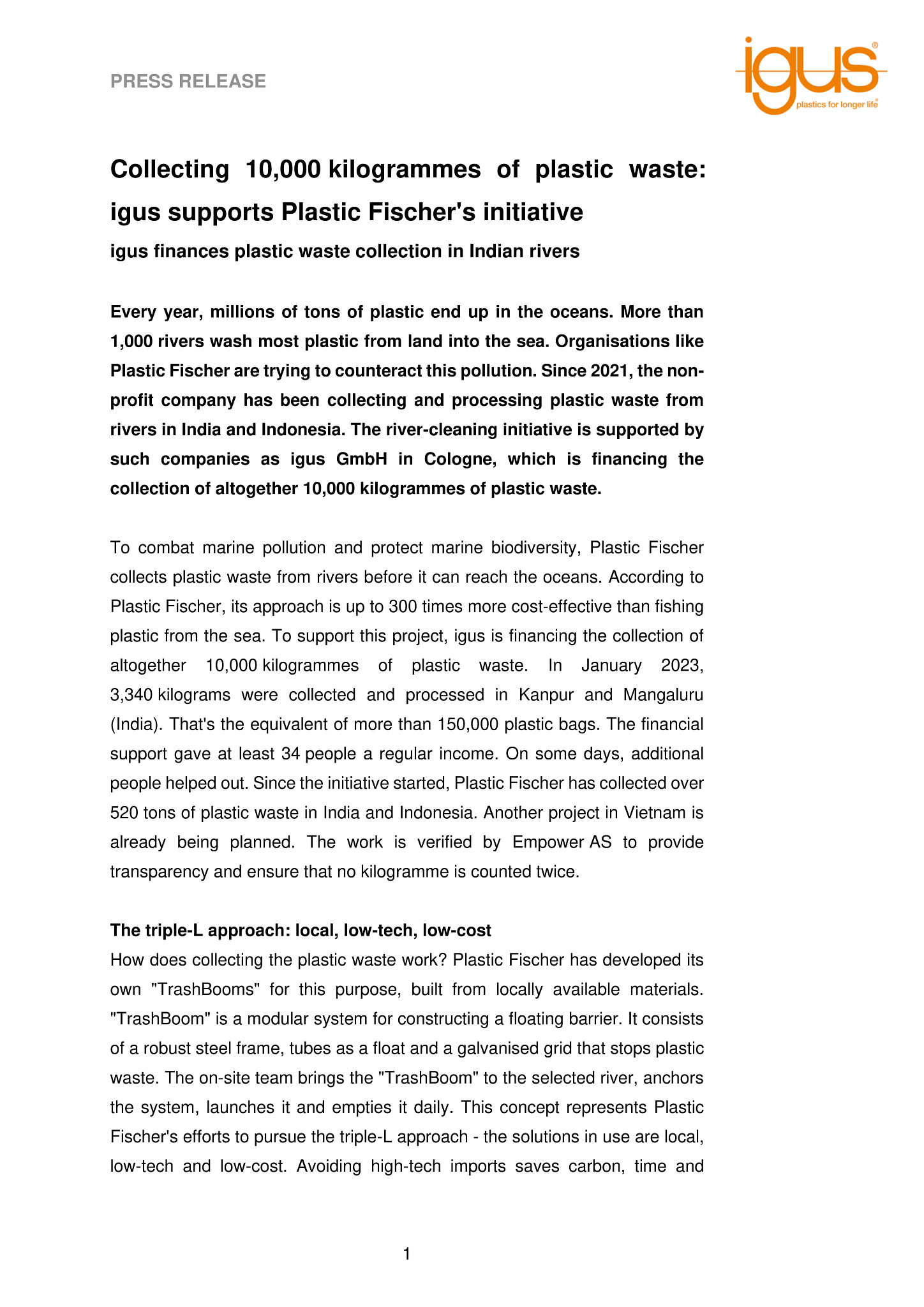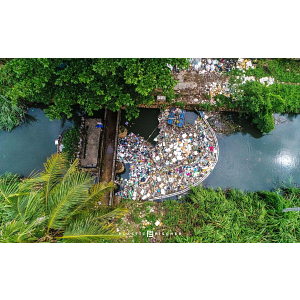Collecting 10,000 kilogrammes of plastic waste: igus supports Plastic Fischer’s initiative
Published on: 16th March 2023
igus finances plastic waste collection in Indian rivers

Every year, millions of tons of plastic end up in the oceans. More than 1,000 rivers wash most plastic from land into the sea. Organisations like Plastic Fischer are trying to counteract this pollution. Since 2021, the non-profit company has been collecting and processing plastic waste from rivers in India and Indonesia. The river-cleaning initiative is supported by such companies as igus GmbH in Cologne, which is financing the collection of altogether 10,000 kilogrammes of plastic waste.
To combat marine pollution and protect marine biodiversity, Plastic Fischer collects plastic waste from rivers before it can reach the oceans. According to Plastic Fischer, its approach is up to 300 times more cost-effective than fishing plastic from the sea. To support this project, igus is financing the collection of altogether 10,000 kilogrammes of plastic waste. In January 2023, 3,340 kilograms were collected and processed in Kanpur and Mangaluru (India). That’s the equivalent of more than 150,000 plastic bags. The financial support gave at least 34 people a regular income. On some days, additional people helped out. Since the initiative started, Plastic Fischer has collected over 520 tons of plastic waste in India and Indonesia. Another project in Vietnam is already being planned. The work is verified by Empower AS to provide transparency and ensure that no kilogramme is counted twice.
The triple-L approach: local, low-tech, low-cost
How does collecting the plastic waste work? Plastic Fischer has developed its own “TrashBooms” for this purpose, built from locally available materials. “TrashBoom” is a modular system for constructing a floating barrier. It consists of a robust steel frame, tubes as a float and a galvanised grid that stops plastic waste. The on-site team brings the “TrashBoom” to the selected river, anchors the system, launches it and empties it daily. This concept represents Plastic Fischer’s efforts to pursue the triple-L approach – the solutions in use are local, low-tech and low-cost. Avoiding high-tech imports saves carbon, time and money and ensures quick repair and high scalability. Full-time jobs are also created locally, which promotes the local economy.
New paths to the circular economy
After the waste is collected, it is sorted. Non-organic material, such as plastic and aluminium, is brought to the drying area and then compressed with a manual or hydraulic press to save space and ensure efficient transport to the next destination. All recyclable materials are fed back into the supply chain. However, the majority of the collected plastic waste is classified as non-recyclable. Instead of being buried in landfills, it is sent for thermal recycling, where it is burned and used as a source of energy. To increase the collected plastic’s recyclability, Plastic Fischer is looking for alternative solutions and working with local start-ups. igus, based in Cologne, has also set itself the goal of promoting the circular economy for plastics. To this end, the plastics specialist develops products from regranulated product waste and 100% recycled material. igus has even launched its own recycling initiative for technical plastics, “Chainge”, including an online platform. Furthermore, the company supports innovative approaches such as the HydroPRS technology of Mura Technology, a British start-up. This new technology converts plastic waste back into crude oil in just 30 minutes – using only high temperature, water and pressure.



